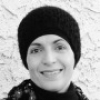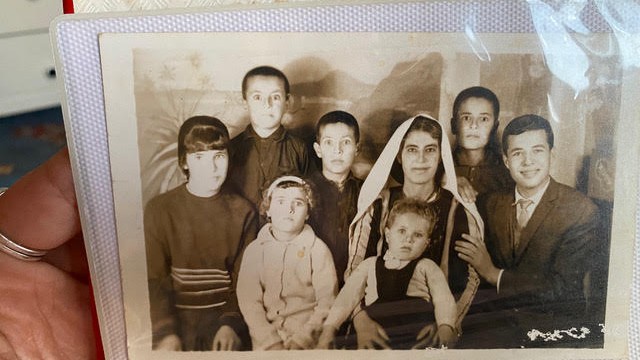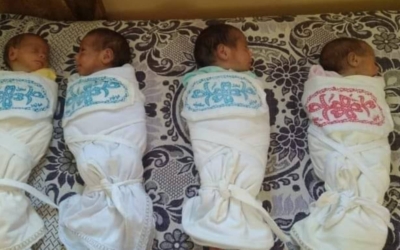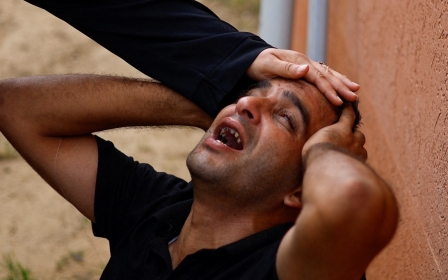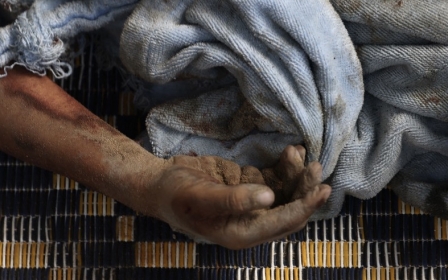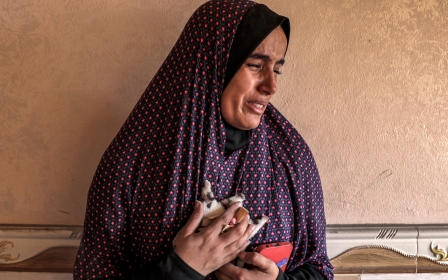Israel-Palestine war: All I held dear now lies under the rubble
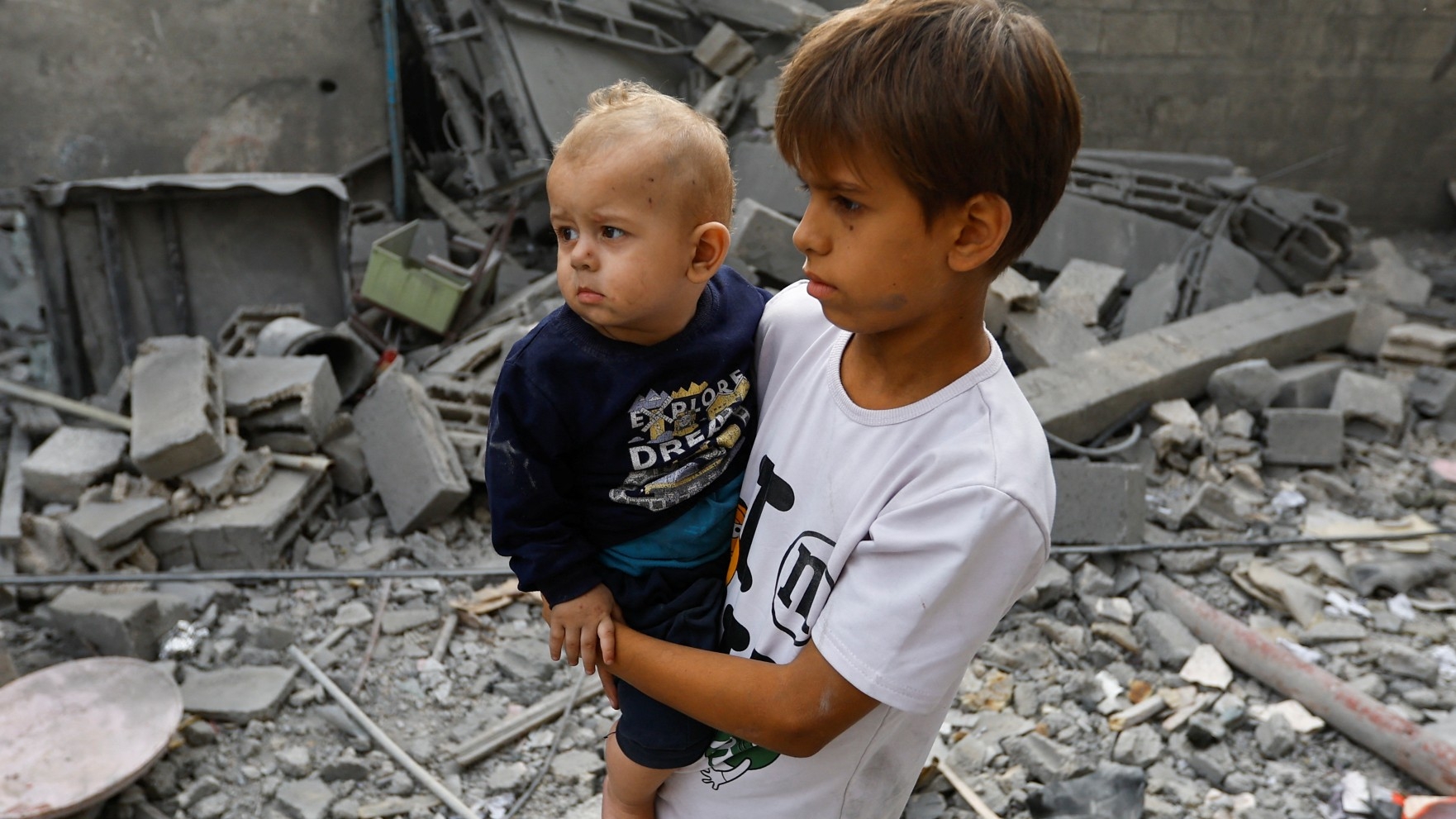
Gone.
In the blink of an eye, my cherished home is no more. Israel deemed my small residence a threat to its existence and its security.
Last Friday, at 6:30am, Wejdan, my husband's niece, called us from Khan Younis in the southern part of the Gaza Strip. The apartment towers in Zahra town were bombed.
Unable to comprehend the news, I asked “Which one?” A moment of silence passed. Then Wejdan said, “All of them.” I passed the phone to my son and wept.
Everything is gone. All I held dear now lies under the rubble. Precious photo albums filled with memories of my school days, the faces of dear friends, the smiles from the early days of my marriage. Moments we captured of my children's first steps, early play, and pictures from school. All gone.
Gone, too, are the photographs of my parents and grandparents. The records of my journeys. My extensive library. Some hard-earned certificates. My graduation photos. Torn asunder is my daughters' artwork as well as an enormous painting created, and gifted, by my brother-in-law, Mohammed, on our wedding day.
All of this, and so much more, has vanished. It feels like a bomb was dropped onto the very substance of my memories.
Follow Middle East Eye's live coverage for the latest on the Israel-Palestine war
Zahra is situated to the south of Gaza City, in the eastern part of the Strip. The air strike obliterated 24 residential buildings. Each tower comprised five floors. Each floor housed four apartments. All of them now exist only in the past tense.
These apartments were home to around 500 families. They include my friends like Dr Abu Adam Safi and his Russian wife. Engineer Obaid’s family. Abeer Allaham’s family. Um Shatha’s family. Abu Manhal’s family. Al-Daba’s family. Fora’s family. Al Tamimi family. Abu Ali family. Many families, including real children.
I want to say their names.
Wiped out
I believe in the words of the writer James Baldwin, that “not everything that is faced can be changed. But nothing can be changed until it is faced.” So, it is crucial to highlight the names of these families so the world cannot claim ignorance.
President Joe Biden, alongside his British and EU allies, has relied on the talking points of the most hardline far-right government of Israel (not a low bar to pass). Biden said he could never imagine the images he had seen of beheaded Israeli children. But his spokespeople walked back these comments about beheadings.
Yet, we hear nothing about the children - real children - whose homes have been destroyed and whose lives have been lost. Because they are Palestinian.
What is uncertain is how many of these families were also providing shelter to families who had fled the northern part of Gaza in response to Israel’s warning to clear the area.
In our case, we offered our apartment to our friend Shaima Al Shawa. Her home in Gaza was bombarded. She survived, and then sought refuge in Al Quds Hospital with her father, mother and brother. When the news broke about the Al Ahli hospital bombardment that left 500 dead, mostly women and children, we urged Shaima to take shelter in our home in Zahra.
Thankfully, they did not need to accept the offer. If she had, we could not urge her any more.
My neighbours and friends are mostly refugees whose original homes were destroyed by Israel in 1948. With the destruction of Zahra, Israel has now wiped out nearly a quarter of the Gaza Strip's homes. Now, my friends are in the streets, with nowhere to go.
In 2016, I wrote (in Apartheid in Palestine) about my great-grandfather in the 1970s, who refused an opportunity to revisit his old home inside what is today called Israel. My grandmother asked him why he refused the opportunity to revisit his old memories. He told her that he would prefer to die rather than walk on the ruins of his old home.
My house, he said in a choked voice, “is my flesh, my sweat, my blood and my bone. It’s me, the broken human being you see now. How do you expect to walk on your body?” He then turned his back on my grandmother to hide the tears.
My grandfather believed that there is nothing in life harder than walking on the rubble of one’s own home. Perhaps, however, there is something worse than walking on the rubble of one’s own home: not being allowed to walk on it.
Today, I share the pain of my grandfather through space and through time.
'Leave this land'
The destruction of a home is an echo of the destruction of a homeland. Israel’s colonial project is designed to wipe Palestine, Palestinians and Palestinian homes from the map. This project started with the 1948 Nakba, the catastrophe that destroyed Palestinian society, then manifested in years of military occupation and relentless violence against Palestinians and their civilian infrastructure.
This violence has included brutal attacks on schools, hospitals, clinics, factories, mosques, churches, bridges, orphanages, power stations, bakeries, water wells and even sports facilities throughout the repeated and relentless assaults on Gaza in 2008, 2012, 2014, and 2022.
The message is stark: "Leave this land."
But in the face of ethnic cleansing and crimes against humanity, the Palestinians have always responded with steadfastness and a dedication to justice that no bomb can wipe out.
The views expressed in this article belong to the author and do not necessarily reflect the editorial policy of Middle East Eye.
Middle East Eye propose une couverture et une analyse indépendantes et incomparables du Moyen-Orient, de l’Afrique du Nord et d’autres régions du monde. Pour en savoir plus sur la reprise de ce contenu et les frais qui s’appliquent, veuillez remplir ce formulaire [en anglais]. Pour en savoir plus sur MEE, cliquez ici [en anglais].


